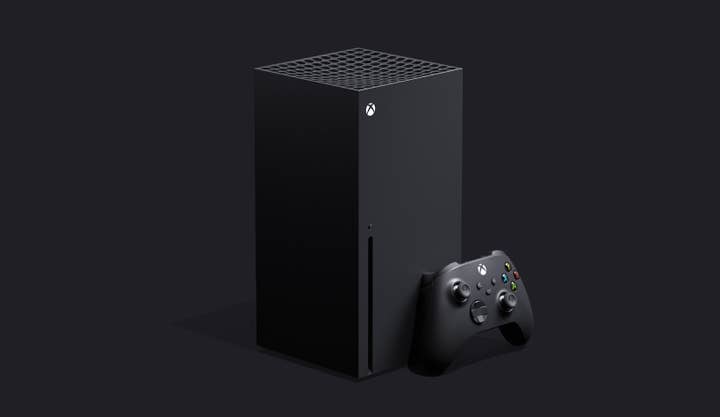Microsoft goes all-in on the 'evergreen platform'
Bowing out of launch exclusives for Xbox Series X means Microsoft is now fully committed to the bold vision it's talked about for so many years
It's a far cry from the widespread opprobrium that greeted the bizarre live TV focus of the original Xbox One, but it would be fair to say that Microsoft's announcement that it won't be releasing any exclusive titles for the Xbox Series X at launch has not exactly been popular.
At best, it's got fans of the platform cautiously welcoming the decision as a sign of continued strong support for the Xbox One consoles -- albeit with an undercurrent of concern that no doubt stems from the fact that the last time Microsoft messed with the tried-and-tested formula for console launches it did not exactly go well. At worst, it's making a lot of consumers wonder what, exactly, the argument for buying a Series X will be this winter, expressing a not unjustified sense that the case for the Series X just got a lot harder when it'll be competing against both cheaper Xbox One consoles that play the same games and the PlayStation 5 (which will have exclusive games).
These are reasonable stances because, beyond a doubt, Microsoft's decision on exclusives is going to make life more difficult for the Xbox Series X in the early months and perhaps even years of its existence. It's not something that the console can't possibly overcome, but it's going to be playing the game on a tougher difficulty setting than would have been the case otherwise. After the unforced errors on Microsoft's part which helped to hand such a commanding lead to Sony in the previous generation, it's easy to understand why Xbox fans conscious of history's inclination to form rhyming verse would feel a bit uneasy with this latest announcement.
"Microsoft's announcement that it won't be releasing exclusive titles for the Xbox Series X at launch has not exactly been popular"
Yet, if you step back from the specifics of the announcement -- important though they may be -- and look at the broader arc of Microsoft's market strategy, the decision looks inevitable, perhaps even unavoidable. Essentially, this decision -- refusing to make any software titles into console exclusives for a newly launched platform -- is something that had to happen at some point if Microsoft's vision for how consoles will work in future is to play out.
At the core of Microsoft's strategy is the firm's belief that it can pull off the 'evergreen console' -- a device that's just a continually upgraded and evolving platform (like a PC, or a smartphone). If it's going to reach that point, though, at some point it was going to have to bite this bullet -- launching a major new hardware update and saying "this isn't going to have any exclusive titles, because it's just the next device in a series that already exists." A new iPhone or Samsung Galaxy doesn't have new software titles you can't use on the previous hardware. Your new PC or Mac doesn't run applications you couldn't run on your old PC. They run them better, as a rule, but if you continued to use the old hardware you'd still be able to use the same apps and games -- albeit with a degraded experience to some extent.
That's the future Microsoft believes in for consoles. A little more complex than that, perhaps -- with streaming and other live services being a major part of the offering, with an eventual goal of offering a seamless experience regardless of the platform you're playing on -- but essentially one that's not a million miles from the regular update cycle and evergreen platform offered by something like the iOS or Android ecosystems that exist now. After articulating that vision for years, with Xbox Series X the company clearly realised that it was time to put up or shut up; that launching a new console which broke the series (i.e. destroyed forward or backward compatibility of titles) would essentially be a repudiation of its own strategy and vision.
"At the core of Microsoft's strategy is the belief that it can pull off the 'evergreen console' -- a continually upgraded and evolving platform"
Sony has a different vision. PS4 Pro shows that it's perfectly willing to do incremental mid-generation upgrades, but it still believes in the validity of a more or less clean break between generations. That has some significant advantages from a software development perspective. It allows the firm to innovate on things like controller layouts (though for now it seems to be pretty conservative on that front) and should, in theory, allow developers to quickly move to utilise features of the PlayStation 5 like the very fast SSD in ways which will be more limited on the Xbox Series X.
Perhaps even more important is the marketing and public perception win that comes from launching a new generation of hardware with shiny, exclusive new games in tow. The perception of "newness" is important; it feeds desirability and, in the case of consoles, new games are a really big part of that. It's worth noting that PS4 Pro and Xbox One X, while ending up as decent performers in terms of sales, were both relatively damp squibs when they launched. "This plays the same games but better" just doesn't fire up consumers like the promise of new games offering a radical departure from previous titles does (even if that promise is so rarely delivered upon).
Sony is banking on this effect driving interest and early adopter sales of PlayStation 5. Microsoft's strategy is to eschew this effect to some extent in favour of the slow-burn advantages of a stable, steadily upgraded platform. This is a pretty major strategic gulf between two companies which otherwise don't look all that different in terms of the hardware they'll be launching.

Which company's strategy will be rewarded by consumers is an open question. Sony certainly has a the weight of history on its side, but Microsoft is doing something genuinely new and it's quite possible that the advantage of keeping the Xbox One live and vibrant even as the Xbox Series X establishes itself could end up being significant. We'll only know for sure once both firms have a chance to test these competing visions in the wild, but in the meanwhile, a more interesting and perhaps challenging thing to think about is what happens a few years down the line, when Microsoft encounters the "trailing end" of this strategy.
By saying "no exclusives for Series X," Microsoft is essentially creating a family of entirely cross-compatible consoles of varying technological prowess which, right now, extends back to the original Xbox. That's the target developers must currently hit -- supporting that range of capabilities, from Xbox One through to Xbox Series X -- but in a problem that's familiar to anyone who has done mobile development, that "window" will continually stretch out as time goes on.
"The next device in the Series X range is probably not that far down the line"
Microsoft's approach implies that the next device in the Series X range is probably not that far down the line -- perhaps 18 to 24 months after the first Series X console appears, we should expect an updated model, stretching that window of capabilities that developers need to support even further. Eventually, the window can stretch no further, so the trailing end of the window is going to have to start to move. Already, some games that play really nicely on Xbox One X are pretty poor on the original Xbox One (there's a notably bigger performance gap between those two devices than between PS4 and PS4 Pro), and sooner or later the trailing end of consoles is going to have to be cut off from software support.
How is Microsoft planning to manage that, when it happens? It's actually a surprisingly urgent question. In just a few years there's going to have to be some way of indicating to consumers exactly which Xbox consoles are and are not supported by specific games or services. I'm sure one of the key justifications (and comfort blankets) regarding this challenge within the company is "hey, this works fine on iOS and Android," but that's a comparison which comes with some built-in assumptions -- including one which says that most if not all of your consumers are going to be paying for their devices through subscription model.
Mobile phones can comfortably cut off the devices beyond the trailing edge from OS updates and new software because they know that the vast majority of customers are regularly swapping their phones out for new hardware for "free" thanks to network upgrade schemes or installment payment plans. Microsoft has made clear that its ambition for Xbox is that its devices should follow a similar economic model to this from the consumer perspective -- but with the final, absolute commitment to the evergreen platform model represented by its strategy with Xbox Series X, the company has now effectively bet the farm on its successful implementation of that strategy, not just in the USA but in all of its global markets.
If Microsoft can make this work, consigning the notion of the console as an up-front cost to the past, then the trailing edge problem will evaporate, because consumers will have updated their hardware at no extra cost long before they hit that trailing edge. But if this part of the model doesn't get the full roll-out and enthusiastic adoption the company is expecting, then the trailing edge problem it just created for itself is going to be a very serious headache in a few years' time. It's all or nothing; Microsoft's vision is one that needs to work in totality, because the individual parts of it could prove remarkably self-destructive if other aspects of the plan fail.
Yet this in itself is tremendously exciting. After years of talking about a radically new model for the console market, Microsoft is finally going all-in on its plan. After a false start last time round, the next generation is going to be a genuine struggle between two completely different competing visions for the future of the games market.

